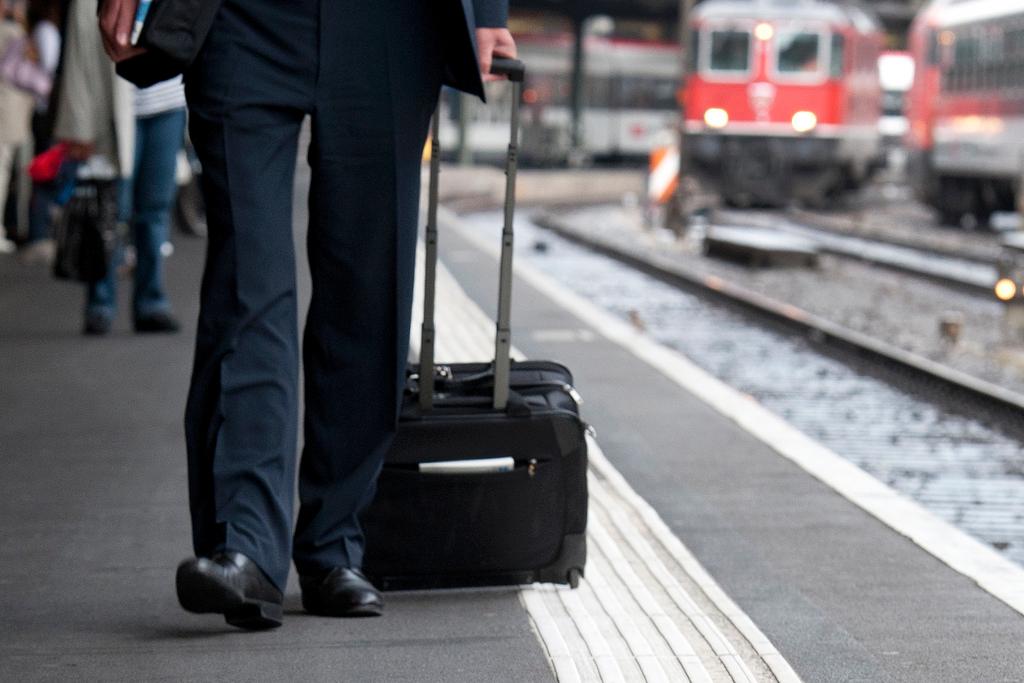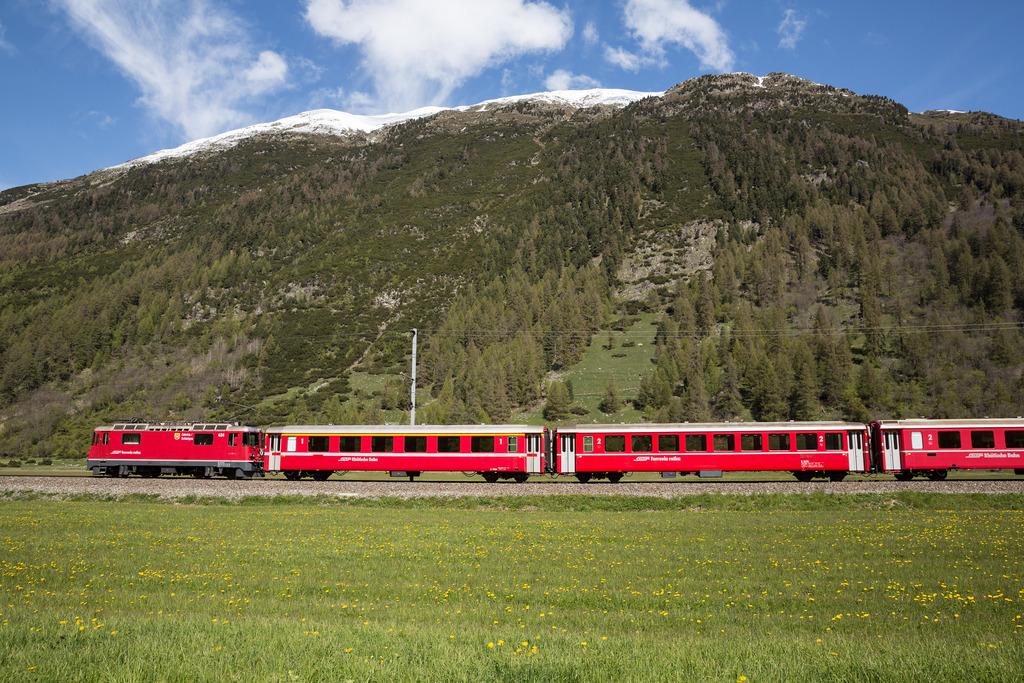Long commutes often an ‘economic necessity’

Swiss researchers studying commuters in four European countries have found economic hardship or good transport systems explain why people are spending a lot of time travelling to work. Their findings are presented in a new book.
Do you spend more than two hours commuting for work every day, or more than 60 nights per year away from home? If so, you are what researchers would call a “highly mobile person”.
Vincent Kaufmann and Gil Viry of the Swiss Federal Institute of Technology Lausanne (EPFL) examined the motivation behind long commutes, and the impact that being “highly mobile” has on workers’ lives. Their research on the subject spans ten years.
The researchers studied about 7,000 working individuals between the ages of 25 and 54 in Switzerland, France, Germany and Spain by administering two surveys – one in 2007 and one in 2011. By questioning some subjects twice, the researchers were able to get a sense of their commuting habits in the context of their personal and professional lives.
Unexpected results
Of the people studied, between 11-15% qualified as “highly mobile” commuters, and most of these lived in Germany and Switzerland.
“In these countries, people mainly choose the long-distance commute,” said Kaufmann, head of EPFL’s Urban Sociology LaboratoryExternal link.
“This is facilitated by the fact that long trips are made easy by the very effective transit system.”
While only 13% of highly mobile commuters in Switzerland reported in 2011 that they had chosen the long-distance route as a last resort to avoid unemployment, that percentage was 28% in France, and 50% in Spain – a phenomenon the researchers attribute to the aftermath of the 2008 financial crisis.
Some of the researchers’ findings were inconsistent with common perceptions of serious commuters. For example, a person who spends more than two hours per day commuting does not necessarily have a high-paying, prestigious career or post-graduate degree; rather, they have likely opted to commute out of necessity. Of the four countries studied, this scenario was especially likely to be observed in Spain.
The authors also discuss impact of commuting on birth rates: up to 23% of women studied who commuted long distances early in their careers did not have children at the time of the survey.
Kaufmann cited “fatigue and burnout” as risks for the highly mobile individual.
“Professional exhaustion often causes people to rethink their choices and give up the highly mobile life,” he said.
Commuting in Switzerland
According to the Swiss Federal Statistical Office, in 2011, nine out of ten employed people commuted to work in Switzerland; more than half of those commuters used a private motor vehicle. About 29% used public transportation, and 16% walked or used a bicycle. The average one-way travel time for a Swiss commuter in 2011 was 30 minutes – seven minutes longer than the average in 2000.

In compliance with the JTI standards
More: SWI swissinfo.ch certified by the Journalism Trust Initiative



You can find an overview of ongoing debates with our journalists here. Please join us!
If you want to start a conversation about a topic raised in this article or want to report factual errors, email us at english@swissinfo.ch.